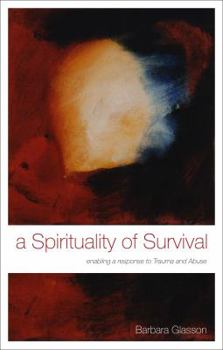A Spirituality of Survival: Enabling a Response to Trauma and Abuse
Drawing on her travels in South Africa and South America and her current role as Director of the face2face project at Holy Rood House, the author asks how the stories of 'survivors' can begin to transform society and the Church. What helps some people 'sur vivre', that is, to live over and above their stories of trauma and abuse and begin to flourish? What is it that brings resilience to the human spirit, what are redemptive relationships and how can we make 'safe enough' spaces for hidden stories to come to light? How can inappropriate power relations be challenged, and forgiveness be a community activity rather than an individual's burden?
This book comes out of the author's experience as a Methodist minister working alongside survivors of abuse, which began when a survivor arrived unannounced on her doorstep. 'It scared me. I wasn't trained for this and I felt totally out of my depth. As the weeks went by, I learned both the trauma and the resilience that were present in my unexpected visitor -- and the need to find a bridge between this experience and an informed theology.' Survivor stories are grounded and echoed in tales from an allotment: of the toil and preparation that are needed, both above and beneath the surface, to enable fragile shoots not only to emerge from the darkness but to grow and flourish. Glasson challenges the victim motif of crucifixion and claims the challenge of the resurrection -- for all people, and for the Church -- to 'live' 'Format:Paperback
Language:English
ISBN:1441192557
ISBN13:9781441192554
Release Date:November 2009
Publisher:Mowbray
Length:176 Pages
Weight:0.55 lbs.
Dimensions:0.4" x 5.4" x 8.4"
Customer Reviews
0 rating





